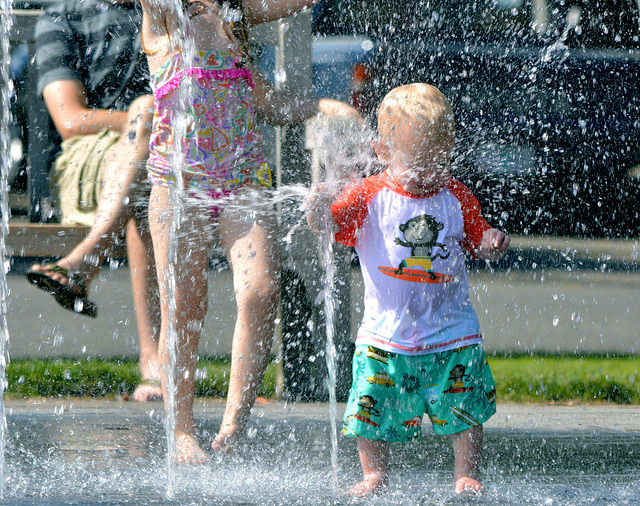
- Remember to bring along drinks, especially water. Try to get children to drink water every 20 minutes, when they are outside in hot weather.
- Pay attention to surfaces that can be hot against children’s skin, such as metal slides and other playground equipment in the sun.
- Safety around water is particularly important. A child can drown in just a few inches of water. Whenever you are near water you must never leave a child alone – if the phone rings, take them with you or let it ring! Always stay within arm’s reach when the children are in or near water.
- Young babies should be kept out of direct sunlight. Keep the baby in the shade or under a tree, umbrella or stroller canopy.
- Dress babies in lightweight clothing and use brimmed hats.
- Apply sunscreen 30 minutes before going outside, even if it appears overcast (cloudy).
- Try to keep children out of the sun in the middle of the day when the sun is strongest.
- Learn what poison ivy looks like and keep children out of it. A good rule to teach the children is “leaves of three, let it be.”
- Use insect repellent spray to keep away mosquitos and ticks. Ask your host parents before applying.
- Check for ticks when you bring children in from playing outside, especially if you’ve been in tall grass or the woods.
Photo: Scott97006 (Flickr)

